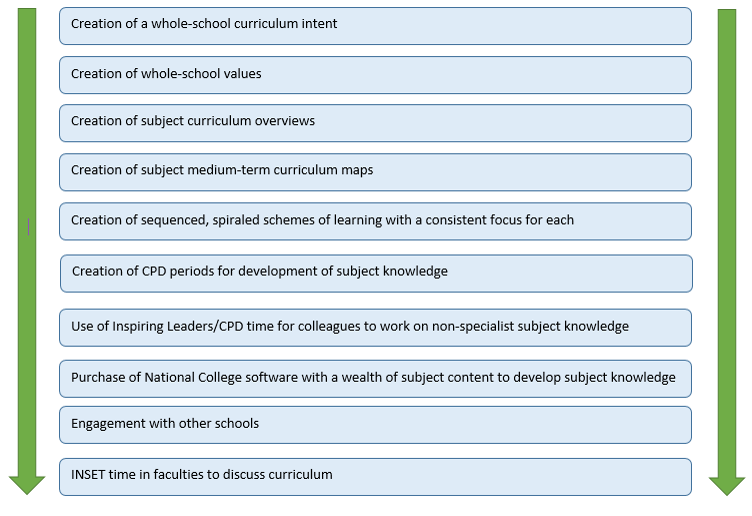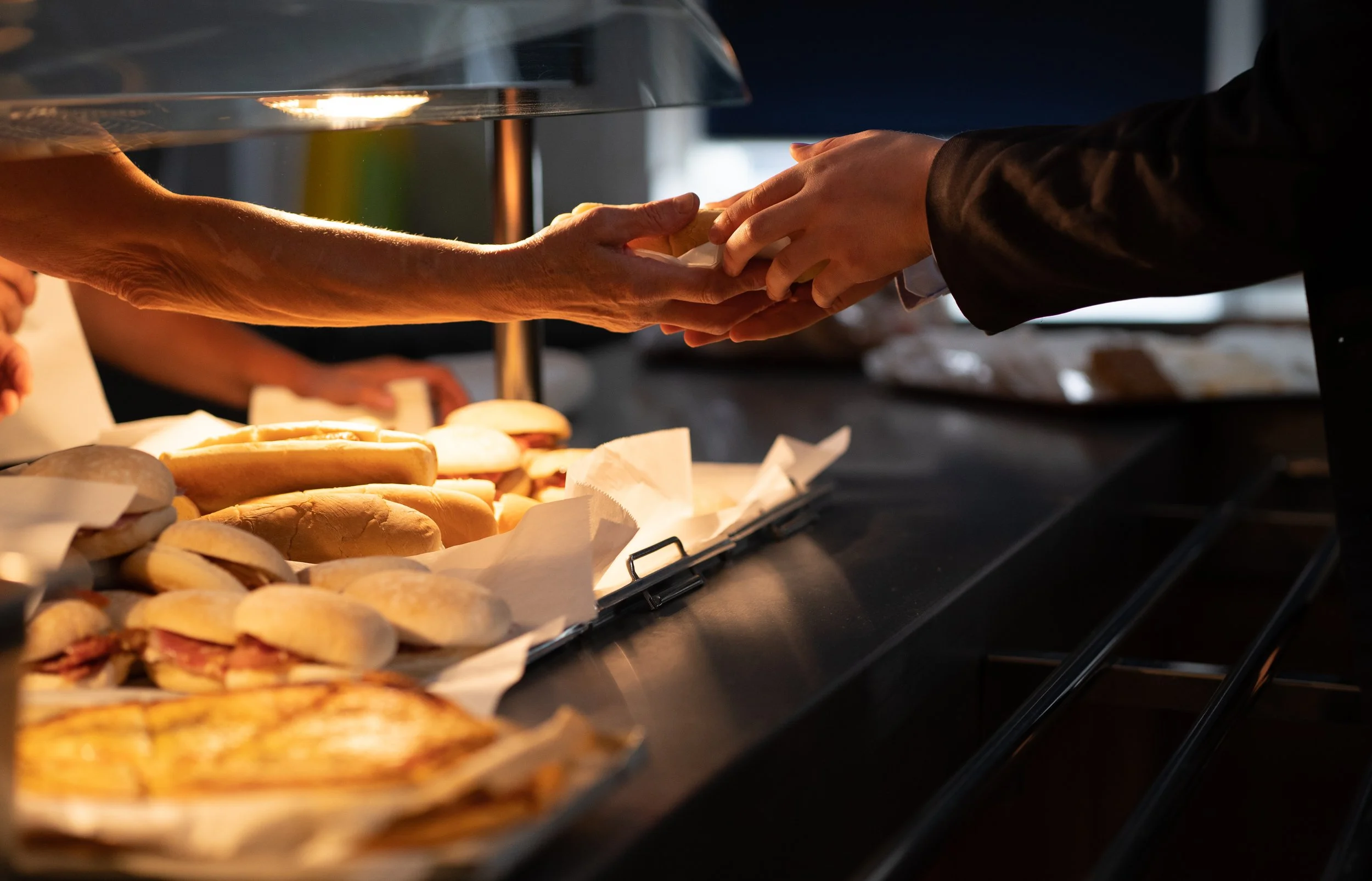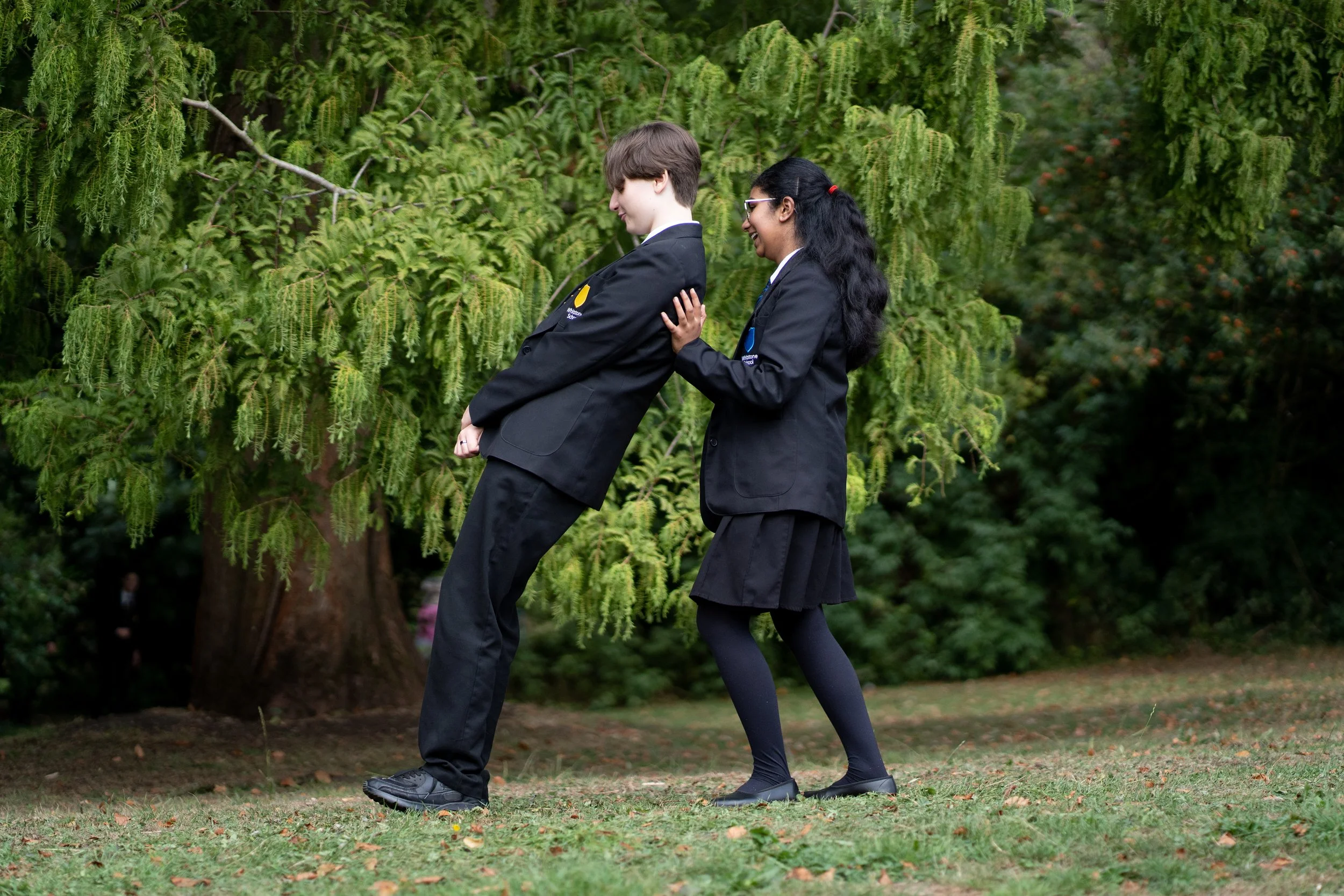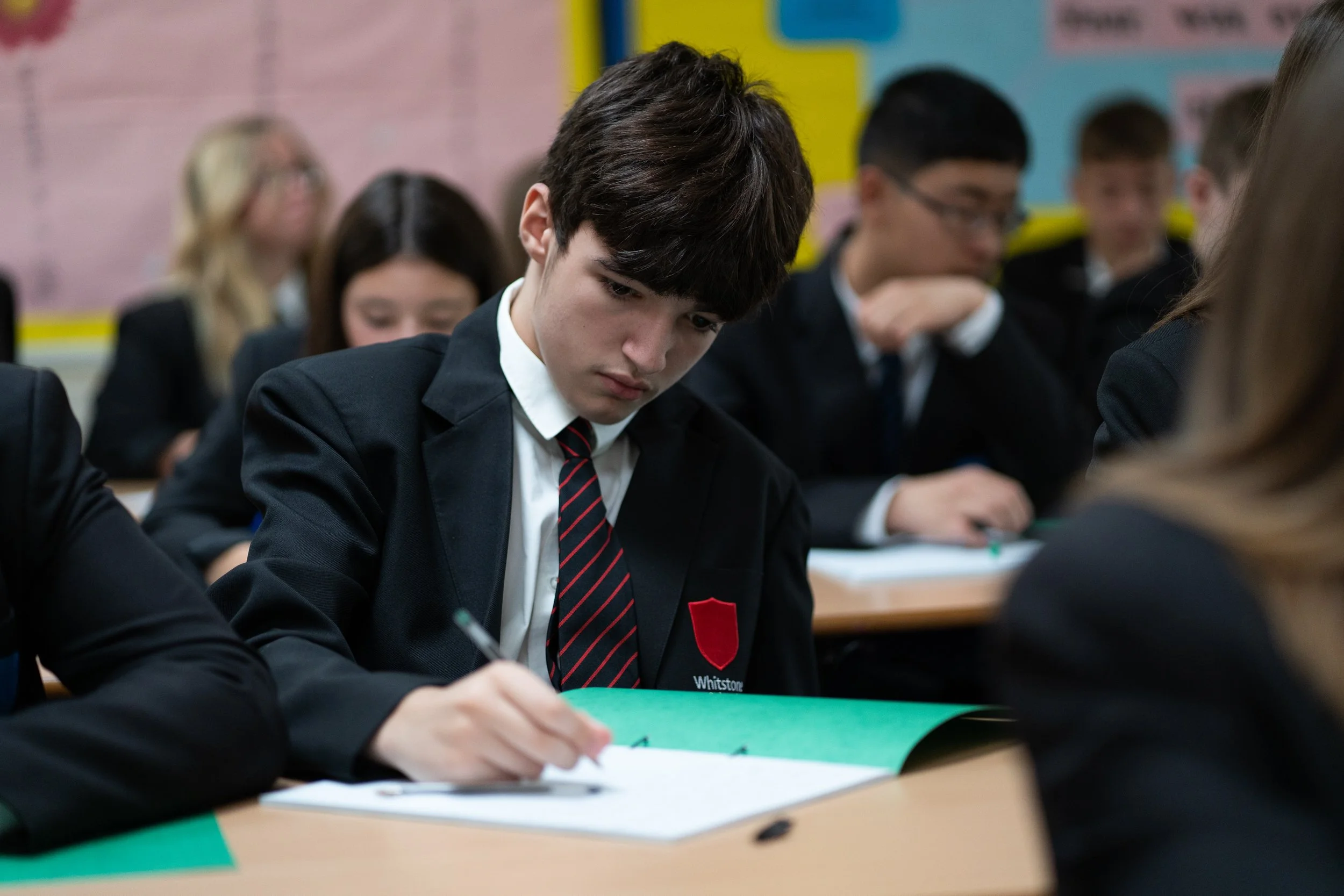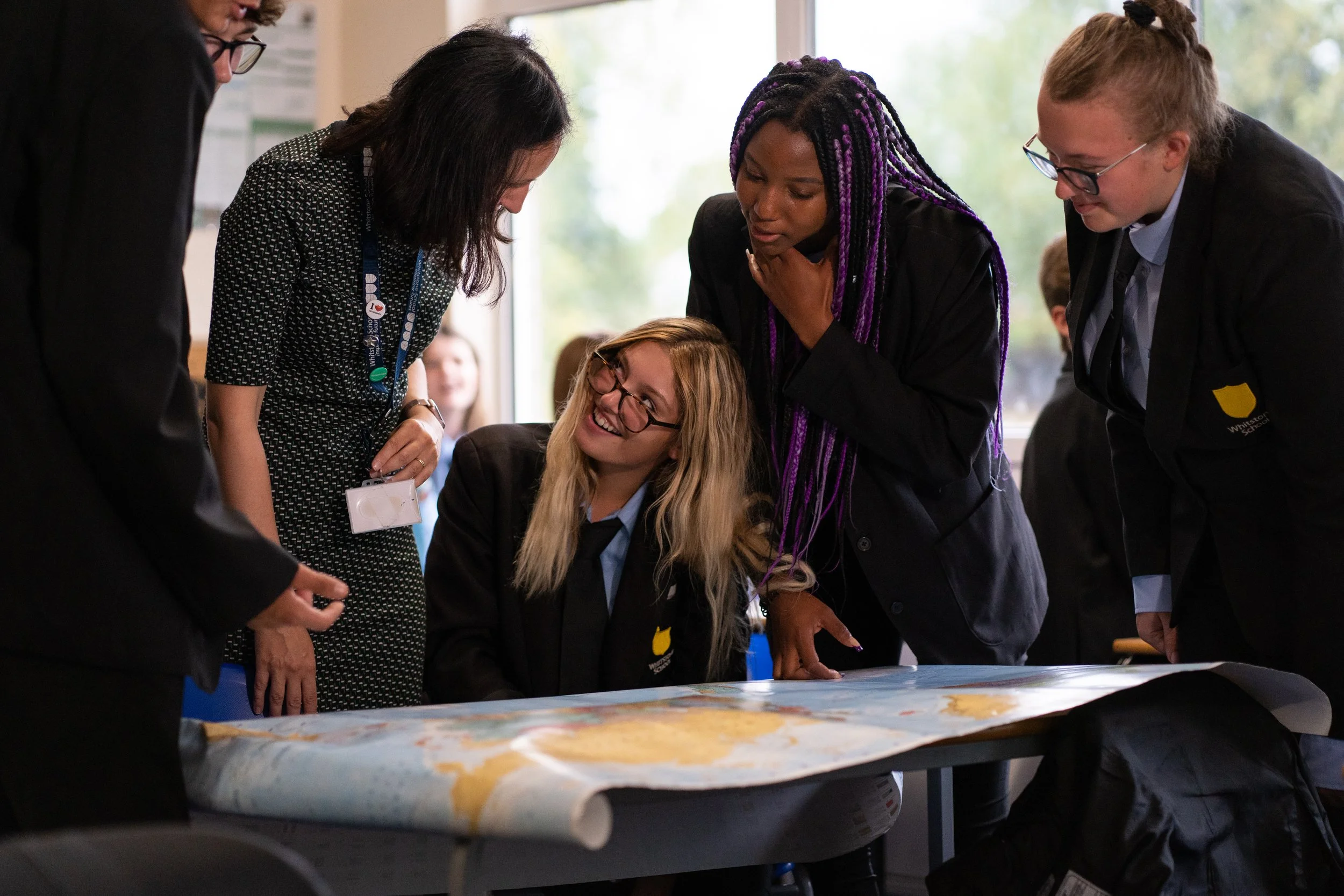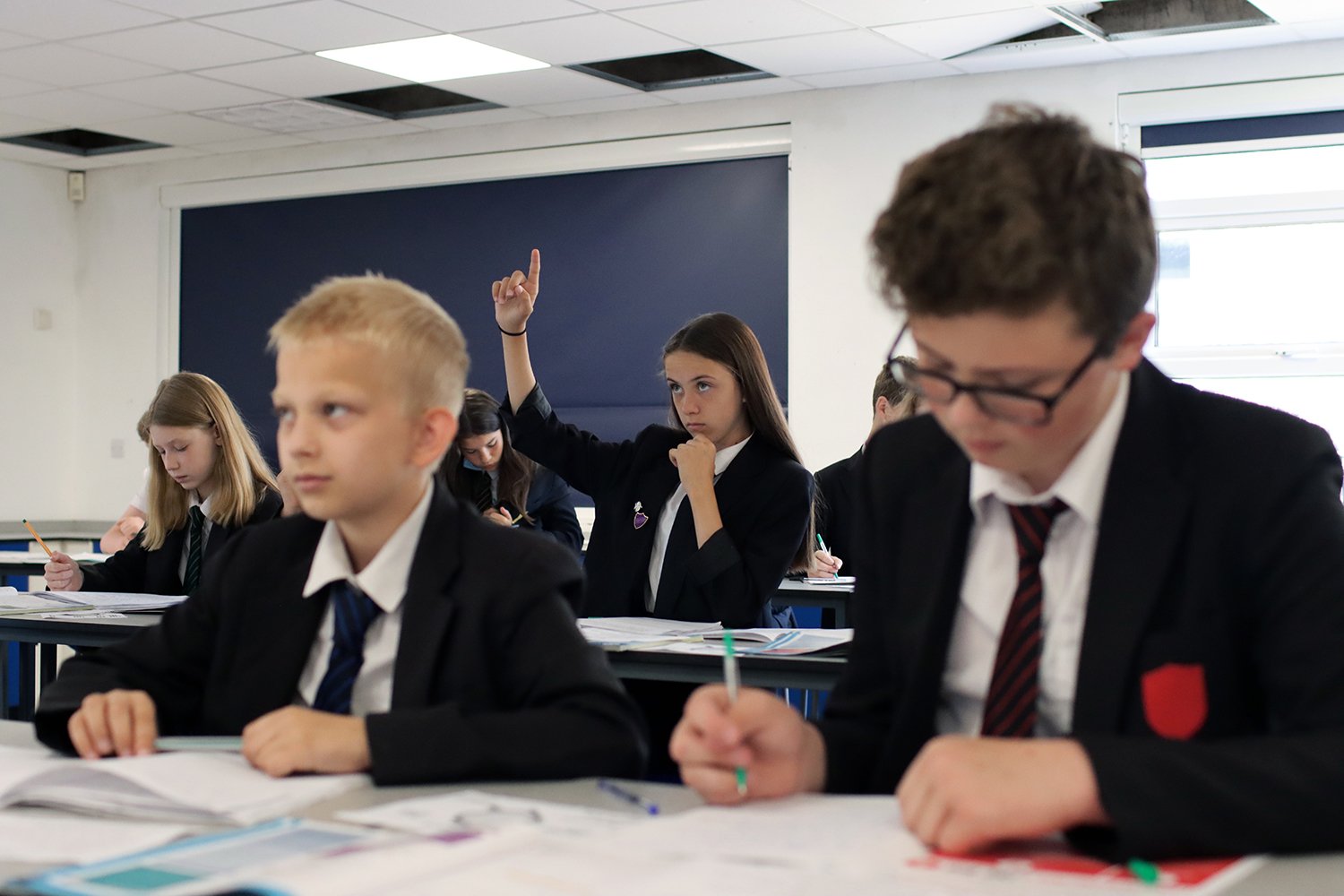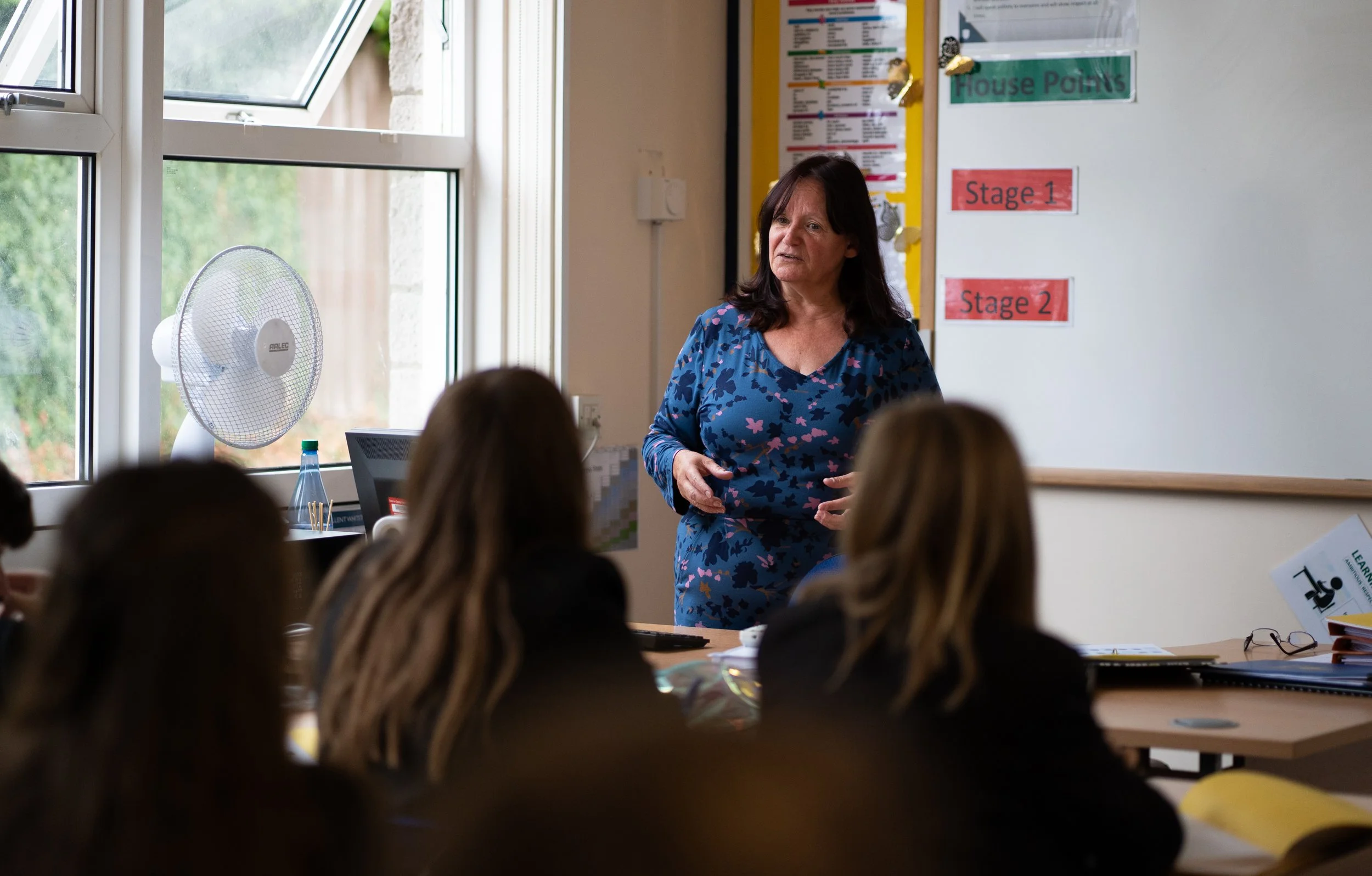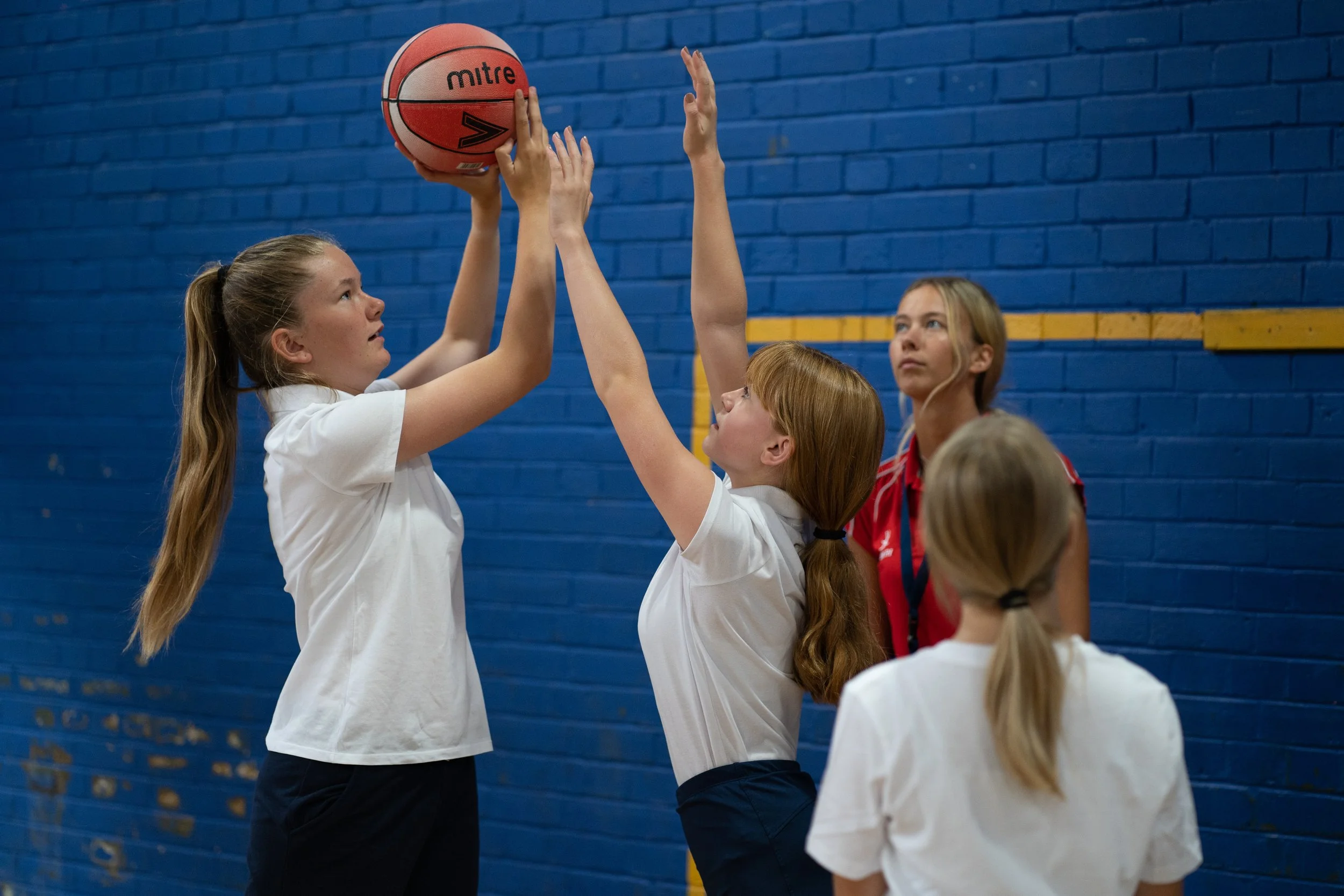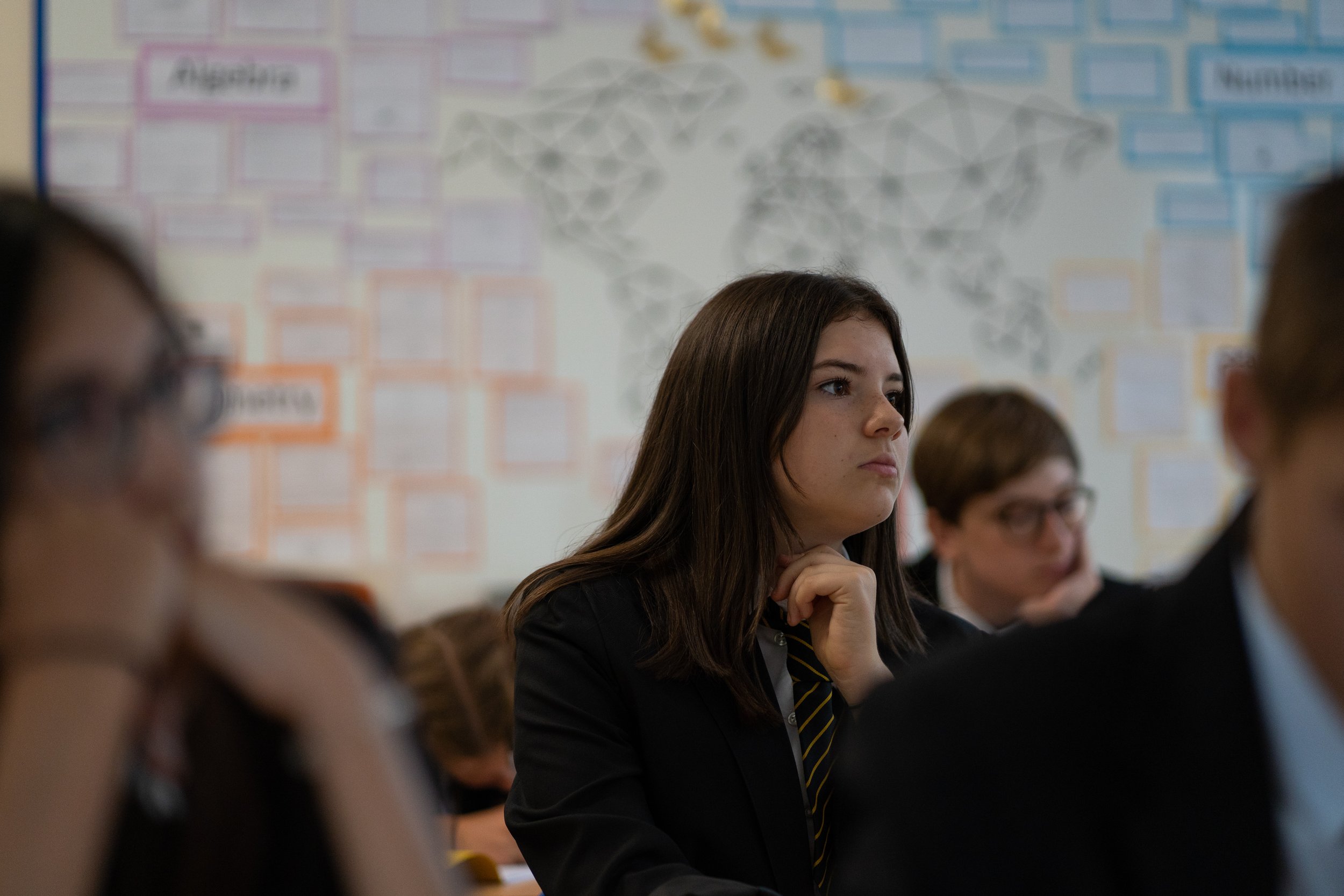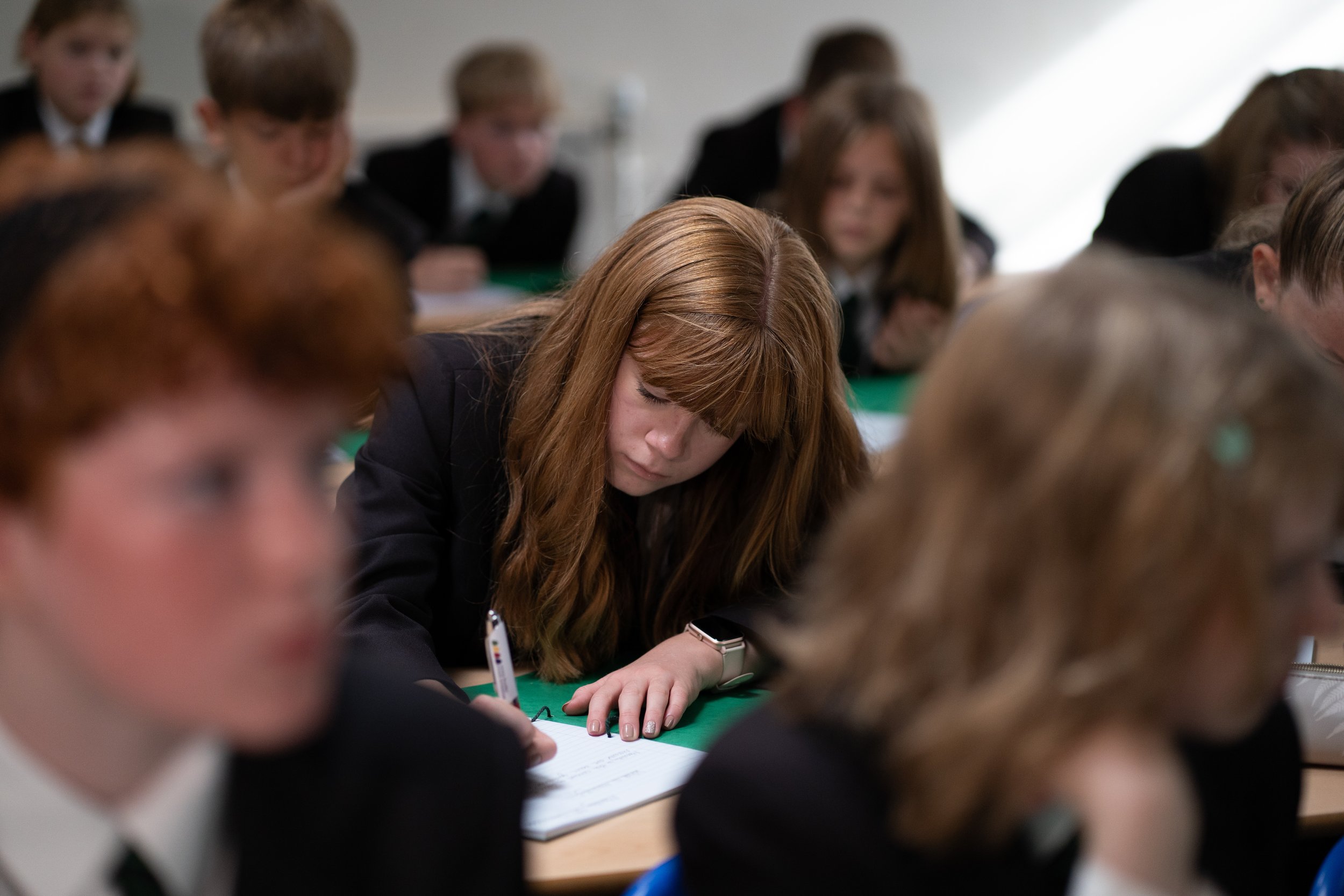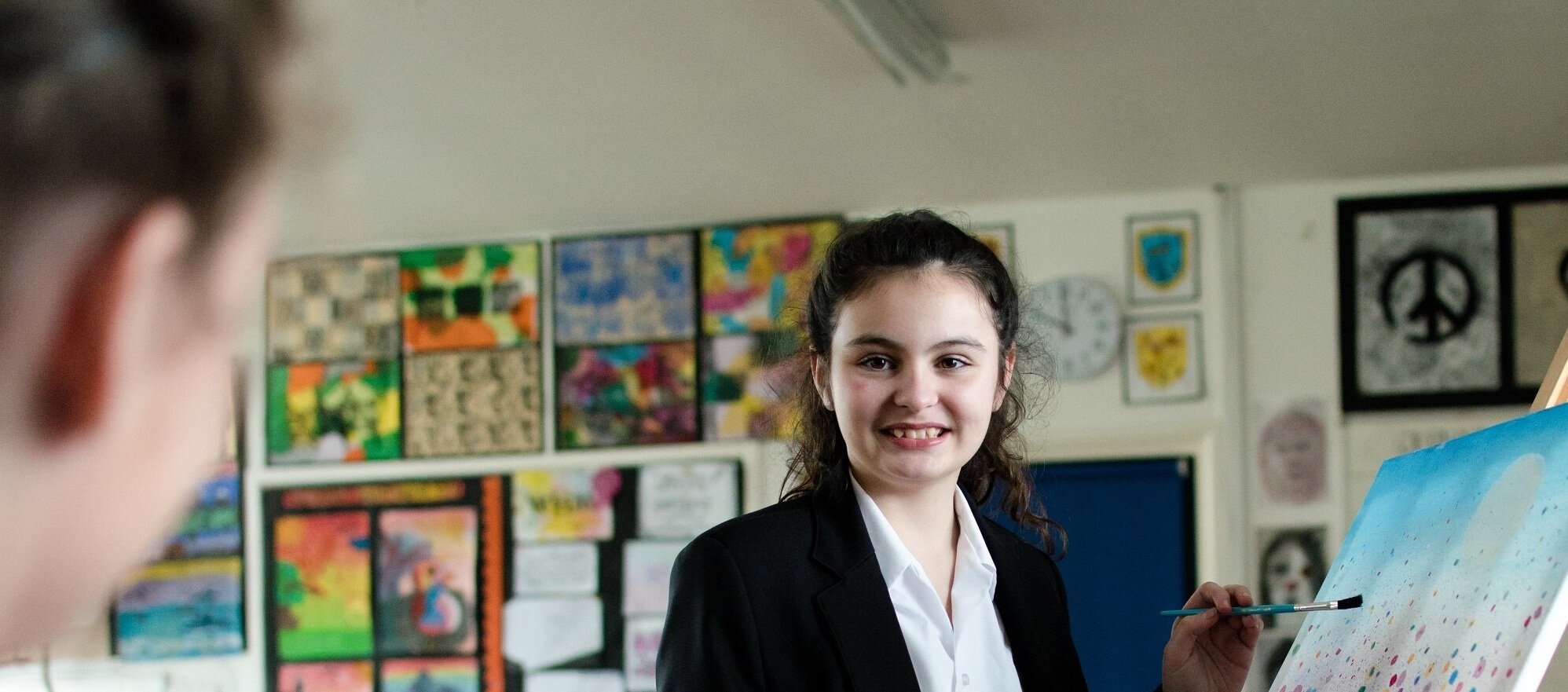
Home > Vision & Values > Curriculum & Learning
The Whitstone School Curriculum
Our Student Development Journey
Our Whitstone School Curriculum Intent
What does the Whitstone School curriculum look like?
At Whitstone School, we offer all individuals a five-year curriculum, built on learning in primary school and with an awareness of post-16 study, which aims to develop students into ambitious, knowledgeable young adults with a high level of respect and an ability to excel within the wider world.
Our Whitstone School Curriculum Values
What do we all seeking to embody in our school community on a daily basis?
Our Whitstone School values underpin everything we do in school and everything we aim to be. These values were selected by students, staff, Trustees and a working group of parents from a long list of suggestions. They are present around our school site and are seen by in the learning, engagement and social development of our students and wider school community. These values are the foundations upon which our Whitstone School Curriculum is built and are represented in lessons, Aspire time, enrichment activities and assemblies. They are the cornerstones of our school and the journey we are on.
Our Whitstone School Curriculum Aims
What does our curriculum set out to be?
At Whitstone School, our whole-school curriculum aims to achieve a number of set criteria. These are outlined below, and will be apparent in the lessons your child engages in at school.
A curriculum which is built around the Whitstone School values.
A curriculum which can be equally accessed by all.
A curriculum which is clearly sequenced at a medium and short-term level in every subject to ensure the retention of knowledge.
A curriculum which is ‘knowledge-rich’ and provides opportunities every lesson to recall previous learning and embed complex ideas.
A curriculum that develops the skills and provides opportunities for students to use them in different contexts.
A curriculum which develops respectful citizens well placed to contribute to our world during and after their time at our school.
A curriculum which is embedded in research, has a strong evidence-base and which is continually under review.
A curriculum which has the development of literacy and numeracy at the heart.
A curriculum which inspires a life-long love of learning.
A curriculum which is enriched by the opportunities offered to students outside of lessons.
Our Whitstone School Curriculum: Student Objectives
What do we want our students to develop whilst they are with us?
Our curriculum sets out to develop students in a number of different ways. During the five years students are with us at Whitstone School, we are constantly seeking to prepare students for successful futures and inspire them in lessons and through an enriching offer of clubs, visits and activities outside of lessons. We aim to build on the student development which has taken place during the time students are in primary school and seek to develop students who have the following attributes…
Students who have the ability to self-regulate effectively and apply skills in different contexts
Students who have the ability to retain high-levels of knowledge and recall it when required
Students who have an understanding of the wider world and an empathy for different cultures and people
Students who are ambitious and seek to excel in everything they face
Students who understand how to progress once they leave Whitstone School
Students who are literate and numerate
Our Whitstone School Curriculum Drivers
What factors have influenced the creation of our curriculum?
The table below outlines the very specific contextual factors or drivers which have influenced the creation of our curriculum. Our curriculum is not ‘off the peg’ but is created with our students, community and local context in mind. These drivers are regularly reviewed as priorities change and our community develops. They are crucially important in making sure our curriculum works in inspiring the futures of our students.
| Driver/Factor | How is this addressed in our curriculum? |
|---|---|
| Our catchment is predominantly ‘White British’ | We expose students to a wide range of cultures and beliefs through teaching, Aspire time and enrichment. |
| Our catchment is relatively rural and consists of almost entirely small towns and villages | We aim to provide students with an understanding of the wider world through lessons, trips, enrichment activities, Aspire time, assemblies and general conversation. |
| Our intake is comprehensive in nature | We have created a curriculum which aims to meet the needs of all learners and have a belief that the best place for students is in the classroom with highly trained practitioners. |
| Our outcomes at Key Stage 4 have been below the national average from 2014-2019 | We have created a curriculum which expects students to know more, remember more and be ambitious in their learning. We challenge students of all backgrounds to achieve more by setting ambitious Expected Grades. |
| Small-scale school challenges creative subjects/the ‘Arts’ | We aim to run these subjects each year – sometimes at an increased cost. We feel that it is important that students are provided with a broad and balanced curriculum throughout their time with us. |
| Our students sometimes arrive with literacy skills below the expectation we would have of Year 7 students | We invest heavily (financially and in terms of time) in literacy. We have appointed a Librarian, redesigned the Library, purchased many new books, introduced reading as a key part of Aspire time and used Accelerated Reader to support student reading development, amongst many other strategies. |
| Our students sometimes arrive without the ability to self-regulate effectively and learn independently | We have clear processes and emphasis on guiding students to make the right choices. |
Our Whitstone School Curriculum Formation
How did we create our whole-school curriculum?
Outlined below is a brief summary of the steps we took over the past two years to create, develop and embed our curriculum across school and within particular subjects. Our curriculum is constantly being reviewed and is evolving all of the time however, these stages were important in arriving at where we are today.
Our Whitstone School Curriculum: Developing Well-Rounded Citizens
At Whitstone School, our curriculum aims to develop students who are able to express an understanding and respect of the wider world. It is important that our students are well-prepared for not only their next stage of education when they leave at the end of Year 11, but also the challenges and opportunities of later life.
We believe in students having a full, dynamic educational experience, where we develop the whole child throughout the curriculum, both within and outside the classroom. Our values of Ambition, Respect and Excellence are ingrained across the school to ensure we create ambitious and respectful global citizens. We provide all students with an enriching additional curriculum which provides inspiring experiences, recovers missed opportunities and is equal in the opportunities it provides.
In the academic year 2021-22, following the restrictions from Covid-19 we are developing a high focus on enrichment and extra-curricular activities. Our aim is for every student to be involved in multiple activities outside the classroom- clubs, trips, external visitors, etc. We aim to broaden horizons and provide students with opportunities they have missed over the previous two years of restrictions.
Our Enrichment Strategy falls under six strands:
1. Competition
2. Inspiring Futures
3. Student Leadership
4. Enrichment Clubs
5. Academic Progress
6. Enhanced curriculum
Our Whitstone Curriculum: Equal Access for All
How do we make sure all students are able to access our curriculum?
At Whitstone School, our aim is always to support, scaffold and differentiate learning to ensure that students can succeed within mainstream classrooms wherever possible. We have seen the benefits over the past two years of providing a broad, differentiated and accessible curriculum across all subjects through the considerable reduction in students requiring education outside of classrooms. Our belief that the specialist teaching offered within subjects provides the best space for the vast majority of our students to engage with the curriculum.
We also aim to keep our Key Stage 4 curriculum offer broad to appeal to the interests, skills and strengths of our different students. We offer a range of vocational courses, a mix of GCSE and BTEC qualifications, a number of creative arts subjects and are constantly reviewing and adding courses based on student and parent feedback. For example, this year sees the first of our BTEC Photography groups and an after-school GCSE RE qualification.
We are also mindful of regularly challenging all students, irrespective of background or additional need. This is shown in our percentage of students completing an EBacc set of qualifications, which has risen from 5% in 2019, to over 20% in 2021.
Our Whitstone School Curriculum Challenge
How do we quality assure our curriculum?
Whilst we are proud of the curriculum we have developed over the past two years, we are also very mindful of continually reviewing what we teach our students, the order we teach this knowledge to them and how we develop key skills. To help with this continual review of our curriculum, we invite challenge in the form of regular quality assurance. Outlined below are a number of ways we quality assure our curriculum…
Through regular Trustee meetings and sub-committee working parties
Through Trustee Learning Visits
Through three-weekly ‘Book Looks’
Through our cycle of ‘Coaching Drop-Ins’
Through a cycle of Team Development Reviews
Through the auditing completed by external consultants
Our Curriculum
Subjects
For more information about our curriculum, teaching and subjects, contact us.


